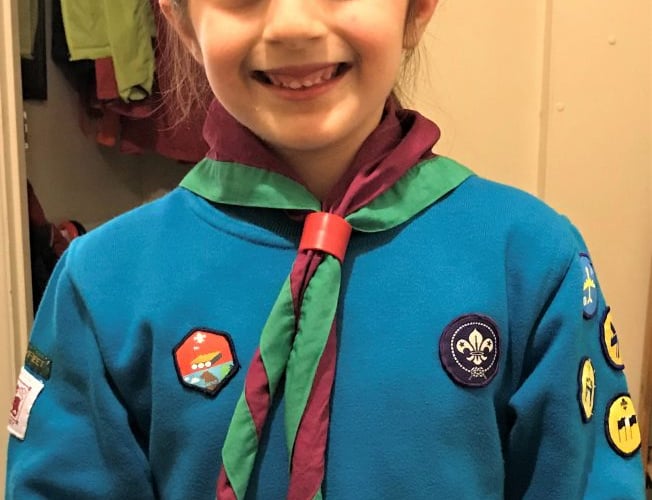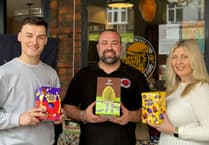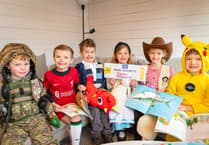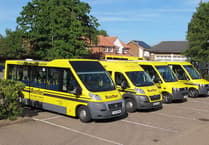THE coronavirus crisis has halted efforts to find an effective therapy to treat a young Woking girl who has a rare genetic syndrome.
Hasti Brannigan, 8, was born with Cornelia de Lange Syndrome (CDLS), which is characterised by reduced growth, developmental delay, feeding problems, speech and language difficulties hearing problems and, in many cases, limb abnormalities.
There is no treatment for CDLS and some of the effects can increase with age.
Her parents, Chris and Hengameh, set up a fundraising drive earlier this year to raise £2.5 million for research and clinical trials.
They set up a host of events with the first aim of raising £400,000 for research to provide a proof of concept for a treatment, which would take about two years to complete.
Money poured in and in the first couple of weeks the sum collected reached £14,700 and then hit £120,000 just before the COVID-19 outbreak took hold in Britain.
“We must have cancelled two dozen events,” Chris said. “We are just two parents trying to find a treatment for our daughter and to have that brought to a grinding halt has been devastating.”
The Brannigans received a letter from the NHS saying that Hasti is in the vulnerable category for anyone who catches COVID-19 and so the family, including sons Navid and Amir, have had to self-isolate.

“I have to go to work occasionally because it involves support for the NHS, but the mental pressure of this is considerable,” said Chris, adding there was a tight timeline to find a treatment to most effectively help Hasti.
He said that despite an end to the fundraising events, the family had been touched by the kindness show by people who have heard about Hasti.
“People have been really amazing and kind, with some sending gifts, including a group of ladies who knitted a quilt for Hasti.”
Chris said he hoped that people would still continue to donate during the lockdown and said that anyone willing to help should to https://uk.gofundme.com/ and search for “Hope for Hasti”.
He said that the biggest direct impact on his daughter from the pandemic had been not being able to go to school and see her friends.
“She is very sociable and finds that hard,” Chris said.
CDLS occurs once in every 30,000 births and those with the syndrome often need round the clock care for their whole lives.
Hasti was born underweight despite being born full term and had to be fed by tube because of an imperfect swallow mechanism and severe acid reflux.
Chris, who is a Major in the Army, was deployed to Afghanistan a few months after Hasti was born and had to return when she needed to spend time in hospital.
She was slow to walk and speak and has daily injections for growth hormone deficiency, but will always be very short.
“The day we received the diagnosis for CDLS was the beginning of the worst period of all our lives. I had begun the day thinking I would take Hasti to a routine appointment after which we had planned to go camping. The bottom fell from my world and I drove home trying not to cry in front of Hasti who didn’t know what was going on. I knew then that I have to do everything I can to save her from this fate.”
Hasti, who would like to become a chef and a dancer, has made steady improvements in some areas but has a rare form of CDLS, a dysfunctional HDAC8 gene discovered only a few years ago. Little is known about how this will affect her in the future.




